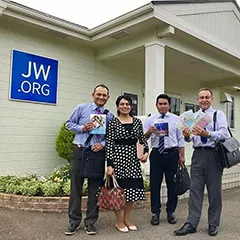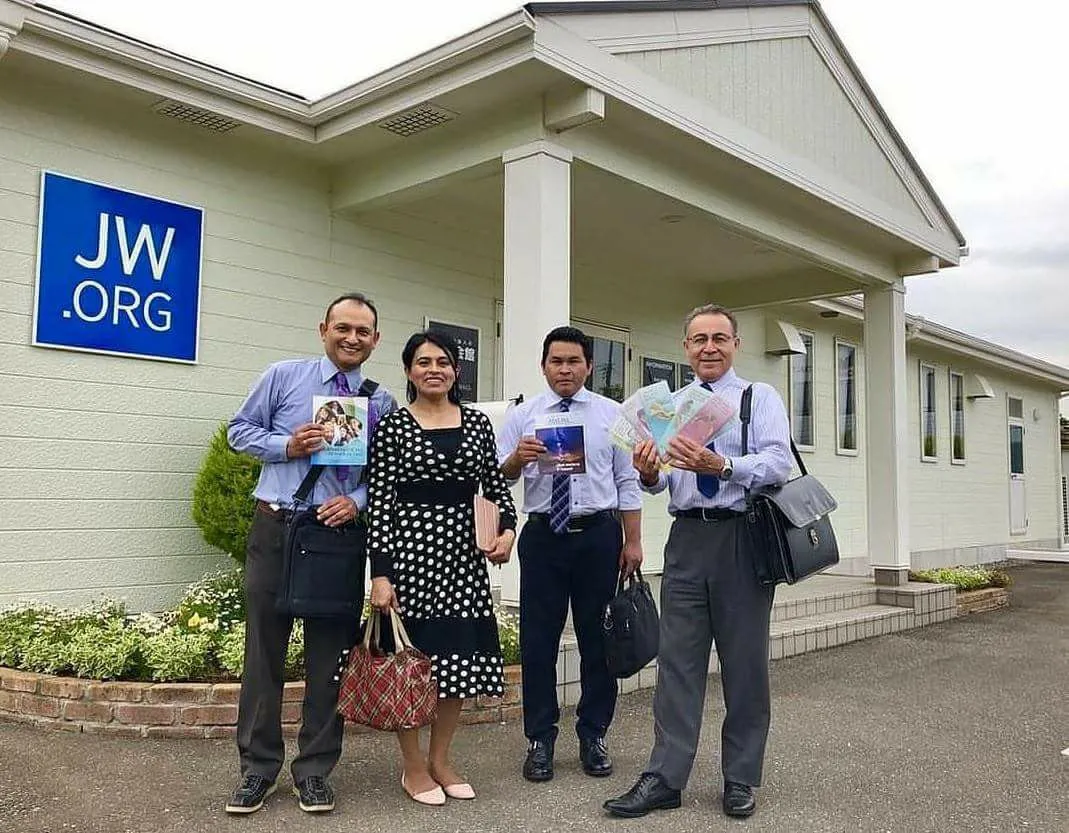
In a recent article, Professor Massimo Introvigne reported on an alarming increase in incidents of violence perpetrated in Japan against members of the Christian Congregation of Jehovah's Witnesses and an equally alarming increase – according to Jehovah's Witnesses of up to 638 percent – of hate crimes and hate speeches. On July 8, 2022, former Prime Minister Shinzo Abe was assassinated by Tetsuya Yamagami, who had claimed that he wanted to punish Abe for his support of organizations linked to the Unification Church, now called the Family Federation for World Peace and Unification, which he hated because of the excessive donations his mother allegedly made to the organization leading her to bankruptcy.
Following this incident, under pressure from Japanese anti-cult groups, the Minister of Health, Labor and Welfare (MHLW) had issued directives aimed at countering the phenomenon of donations and so-called "religious abuse of minors," in the form of "Questions and Answers" (Q&As) published on Dec. 27, 2022. Among the main proponents of the initiative was the anti-cult group "Japanese Society for Cult Prevention and Recovery" (JSCPR), a network composed of psychologists, members of the religious community, lawyers, psychiatrists, sociologists of religion, counselors, former members of "controversial groups" and their families, who use the concept of "mind control" to motivate their liberticidal initiatives. Among the many religious minorities that they dislike, the most well-known ones outside Japan, besides the Family Federation for World Peace and Unification and Jehovah's Witnesses, are the Church of Scientology and the Sokka-Gakkai.

Jehovah’s Witnesses members in front of a house of worship in Japan. (Photo: Jehovah’s Witnesses Examiner / Facebook)
Now, in another article below, Professor Massimo Introvigne reports that four UN Special Rapporteurs have sent a letter to the Japanese government denouncing discrimination and hate crimes against Jehovah's Witnesses following the publication of the "Q&A on Responses to Child Abuse Related to Religious Beliefs, etc."
United Nations denounce discrimination and hate crimes against Jehovah’s Witnesses and others
For the first time, an official UN document signed by four Special Rapporteurs acknowledges the existence of a major religious liberty crisis in the country.
By Massimo Introvigne, Bitter Winter (04.07.2024) — A letter to the government of Japan by the United Nations Special Rapporteur on freedom of religion or belief, Nazila Ghanea; Special Rapporteur on the right to education, Farida Shaheed; Special Rapporteur on the promotion and protection of the right to freedom of opinion and expression, Irene Khan; and Special Rapporteur on the rights to freedom of peaceful assembly and of association, Clément Nyaletsossi Voule, dated April 30, 2024, has now been made public. As the letter explains, it is the Special Rapporteurs’ normal practice to publish such statements 60 days after they are communicated to the respondent Government for its comment.
The statement refers to the controversial “Q&A on Responses to Child Abuse Related to Religious Beliefs, etc.” released by the Japanese Ministry of Health, Labour, and Welfare on December 27, 2022 (a full translation was published in “The Journal of CESNUR”). The Q&A are part of a set of laws, guidelines, and administrative regulations issued after the 2022 assassination of former Prime Minister Shinzo Abe. The politician was killed by a man who intended to punish him for his cooperation with the Unification Church, now called the Family Federation for World Peace and Unification, which the assassin blamed for the fact that in 2002 his mother had gone bankrupt, allegedly because of her excessive donations to the religious movement. A campaign against “cults” followed, of which the Q&A are one of the by-products.
As the UN statement notes, “the Q&A Guidelines were developed against the background of increased scrutiny and stigmatization of some religious or belief minorities following the assassination of former Prime Minister Shinzo Abe on 8 July 2022,” and were prepared in cooperation with private anti-cult organizations. “The Guidelines were drafted in consultation with the Japanese Society for Cult Prevention and Recovery (JSCPR), whose Chairperson called for the recognition of a new type of child abuse by religious groups in October 2022, and had previously made public statements denigrating the Jehovah’s Witnesses and other religious or belief minorities.”
The statement goes on to comment that, “While the Jehovah’s Witnesses are not mentioned in the Q&A Guidelines as such, their practice and activities appear to be targeted by the new policy. Neither the Jehovah’s Witnesses nor any other religious or belief minority were consulted during the preparation of the Q&A Guidelines, despite the sensitivity of the context and the fact that the Q&A Guidelines concern all religion or belief communities. While the Jehovah’s Witnesses had repeatedly sought a meeting with the Ministry of Health, Labour and Welfare, none was granted until the Q&A.”
The four Rapporteurs rightly observe that the Q&A are based on a problematic notion of child abuse that “may occur with the background of religious beliefs,” and note that “several parts of the guidelines appear to set a lower threshold for the establishment of abuse in religious as opposed to non-religious contexts.” In other words, the Q&A regard as abusive pressures by parents to persuade children to participate in religious services but not to attend, for example, sport training or music or dance classes. They deem abusive parents who object to their children’s participation in certain forms of entertainment based on religious motivations, but not other parents whose objections may be political or cultural. They state that children should not be asked to wear signs identifying their religion, but there are no similar provisions for signs expressing support for political, artistic, or sport organizations.
“Several of the guidelines,” the statement adds, “make vague references to deviations from ‘social conventions,’ ‘social appropriateness,’ or ‘socially accepted norms,’ as the basis for establishing potential forms of abuse, thereby limiting the diversity of manifestations of religion or belief which are inherent to its free exercise.” The Rapporteurs remind Japan that states cannot prevent their citizens to adopt and transmit to their children a lifestyle and customs different from those of the majority, outside of the rare cases when state intervention is justified by “necessity and proportionality.”
As “Bitter Winter” reported, the Q&A had the immediate effect of generating a climate of discrimination and hate against the Jehovah’s Witnesses and other religious minorities. “The release of the Q&A Guidelines was accompanied by significant media coverage, some of which accused religious or belief minorities including the Jehovah’s Witnesses of being guilty of child abuse. Jehovah’s Witnesses have reported a 638% increase in hate crimes in 2023 as compared to the previous six years… Reported incidents included a violent physical assault of an elderly Jehovah’s Witness in Yachiyo City, Chiba, on 11 February 2024. The same month, letters threatening the mass murder of Jehovah’s Witnesses were left at their places of worship in Hyogo Ward and Kita Ward, Kobe City. These concerning developments were accompanied by an increase in online and offline hate speech and incitement to discrimination and violence, some of which directly referenced the Q&A Guidelines.” The Q&A were also at the origins of investigations into the activities of the Jehovah’s Witnesses and the distribution of pamphlets in schools “against a background of heightened stigma and negative attitudes towards religious or belief minorities in Japan.”
All this, the Rapporteurs said, “may constitute a violation of the principles of neutrality and non-discrimination, as well as potentially contributing to further stigmatization and suspicion of religious or belief minorities.” They are also “concerned that in the context of heightened suspicion of religious or belief minorities, the Q&A Guidelines in their current form may facilitate stigma, social pressure, or bullying of children belonging to religion or belief communities,” as well as “an increase in hate crimes and instances of hate speech and incitement of hatred, discrimination and violence” against the Jehovah’s Witnesses and other groups.
The Rapporteurs asked Japan to respect its international human rights and freedom of religion or belief obligations and immediately take measures to prevent discrimination and hate crimes. The statement notes that the information the United Nations have received about Japan “is sufficiently reliable to indicate a matter warranting immediate attention. We also believe that the wider public should be alerted to the potential implications of the above-mentioned allegations.”
The Japanese government did submit a very weak response to the statement on June 27. It claims that the Guidelines also apply to non-religious abuse of children, which is false, as the very title and the introduction explicitly state the contrary. It defends its methodology based on a “survey” and “consultations” with relevant “parties,” but those interviewed and consulted were either anti-cultists or apostate ex-members selected by the anti-cultists. The “survey” was also designed and administered by anti-cultists and based on obviously leading questions. The Japanese government also states that it was never its intention to incite violence against the Jehovah’s Witnesses and other minorities. This may well be true, but any scholar of discrimination might have told it in advance that publicly demonizing and slandering minorities unavoidably generates violence.
The United Nations statement a very important document and a breakthrough in the post-Abe-assassination situation of religious minorities stigmatized as “cults” in Japan. For the first time, a high international body acknowledges that Japan is going through a major religious liberty crisis, and one “warranting immediate attention.”
Source: HRWF





